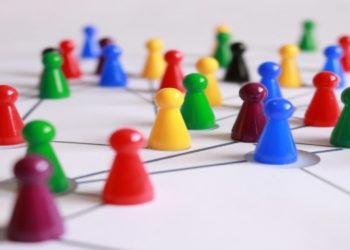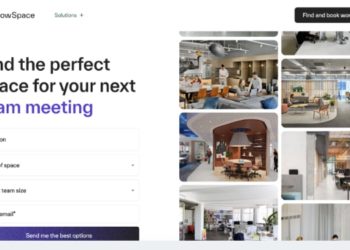As the landscape of work continues to evolve, the careers that once defined the economy are giving way to new, forward-thinking roles that align with global shifts in technology, sustainability, and societal values. These emerging paths aren’t just about earning a living—they’re about building a better world. Here’s a look at the transformative careers helping to shape tomorrow’s world in bold and unexpected ways.
1. Ethical Tech Designers
While tech continues to advance rapidly, there’s a growing need for professionals who don’t just develop technology—but do so responsibly. Ethical tech designers bridge the gap between innovation and social impact, ensuring that the tools and systems we create serve everyone fairly.
These roles combine expertise in AI, data science, UX, and philosophy to address concerns around bias, privacy, digital addiction, and inclusion. They influence everything from algorithm transparency to the emotional impact of interfaces.
Why It Matters: As AI and automation become ubiquitous, the ethical frameworks that guide them will define how inclusive and just our digital future becomes.
2. Climate Resilience Strategists
While sustainability specialists focus on preventing environmental harm, climate resilience strategists prepare communities, businesses, and governments for the inevitable effects of climate change. This role blends urban planning, environmental science, and social equity to build future-proof systems.
They work on flood-resistant infrastructure, heatwave response plans, and food security strategies, often partnering with local governments and NGOs to support vulnerable populations. For example, what a renewable energy technician does goes far beyond just maintaining equipment—they actively contribute to the global shift toward sustainable power systems.
Why It Matters: As extreme weather events become more frequent, we need experts who can help societies not just survive—but thrive—in an unpredictable climate.
3. Human-AI Collaboration Facilitators
Instead of framing AI as a replacement for humans, a new generation of professionals is focusing on how humans and AI can work side by side. Human-AI collaboration facilitators design workflows, training programs, and interfaces that allow people to co-create with intelligent machines.
From pairing artists with generative design tools to supporting customer service reps with AI-powered insights, these facilitators ensure that technology enhances human capability rather than replacing it.
Why It Matters: As AI enters every industry, success will hinge on how well humans and machines can learn, adapt, and create together.
4. Neurodiversity Inclusion Consultants
More companies are recognising the value of a neurodiverse workforce—employees with autism, ADHD, dyslexia, and other cognitive differences bring unique perspectives that fuel innovation. Neurodiversity inclusion consultants help organisations build supportive environments that celebrate and accommodate neurological differences.
These consultants assist in redesigning hiring processes, training managers, and creating flexible work environments that suit diverse thinking styles.
Why It Matters: Inclusion isn’t just ethical—it drives performance. A neurodiverse workforce can lead to more creative solutions and better decision-making across industries.
5. Regenerative Agriculture Specialists
Moving beyond sustainability, regenerative agriculture focuses on improving soil health, increasing biodiversity, and restoring ecosystems. Specialists in this field work with farmers, policymakers, and food companies to shift agricultural practices in ways that heal the planet rather than just sustaining it.
They champion techniques like cover cropping, rotational grazing, and permaculture, backed by data and soil science to track long-term impact.
Educational programs like the soil science degrees at CSU and other universities help prepare the next generation of experts by combining research, fieldwork, and innovation to tackle real-world environmental challenges. This kind of academic foundation supports efforts to create healthier soils and more resilient food systems.
Why It Matters: Our food systems are at the heart of environmental and social well-being. Regenerative practices have the potential to reverse environmental damage while improving food security.
6. Virtual Economy Architects
As digital spaces evolve into fully-fledged economies—through gaming, NFTs, virtual real estate, and the metaverse—new careers are emerging that focus on building, regulating, and managing these economies. Virtual economy architects design digital marketplaces, balance in-game economies, and advise companies on monetisation strategies within virtual worlds.
They understand economics, behavioural psychology, and digital user experience, making them essential to the future of digital interaction.
Why It Matters: With more people spending time (and money) in virtual spaces, the rules that govern these economies will impact real-world livelihoods and ethical business practices.
7. Biofabrication Engineers
Biofabrication merges biotechnology with manufacturing to create materials and even tissues using cells and biological processes. These engineers are exploring how to 3D print organs, grow lab-based meat, and produce sustainable fabrics without the environmental toll of traditional industries.
This field blends biology, materials science, and engineering, and its implications stretch across healthcare, fashion, and food.
Why It Matters: Biofabrication has the potential to reduce reliance on scarce resources, eliminate animal cruelty, and solve transplant shortages—radically reshaping how we produce what we need.
8. Digital Wellbeing Designers
As our lives become more digitally connected, the need for balance has become essential. Digital wellbeing designers create apps, tools, and platforms that promote mindful tech use and reduce the negative effects of screen fatigue, social media burnout, and overwork.
They draw from psychology, design, and behavioural science to help users build healthier relationships with their devices—integrating features like downtime prompts, attention-aware notifications, and mood-tracking dashboards.
Why It Matters: Mental health is a cornerstone of productivity and quality of life. Designing tech that supports rather than drains our wellbeing is crucial in an always-online world.
9. Remote Culture Directors
The remote work revolution isn’t just about working from home—it’s about rethinking how we connect, collaborate, and build community in digital spaces. Remote culture directors focus on maintaining strong team dynamics, emotional intelligence, and shared purpose within dispersed teams.
These professionals design rituals, communication strategies, and digital-first environments that help teams stay engaged and aligned, even when working across time zones.
Why It Matters: As hybrid and remote models become the norm, strong culture will be the key differentiator for successful, resilient organisations.
10. Lifelong Learning Ecosystem Builders
In a world where change is constant, education can’t stop at graduation. Lifelong learning ecosystem builders work at the intersection of education, technology, and workforce development to create systems that support ongoing personal and professional growth.
They build platforms, partnerships, and credentials that allow individuals to continuously reskill and adapt—especially in fast-changing fields like tech, healthcare, and climate science.
Why It Matters: The jobs of tomorrow may not exist yet—but with the right learning systems in place, people can be ready for whatever comes next.
Conclusion
The future is already taking shape—and the careers leading the charge are diverse, meaningful, and deeply human. From designing ethical technology to reinventing our food systems, these roles go beyond profit—they focus on purpose, impact, and resilience. Whether you’re just starting out or looking to pivot, the careers shaping tomorrow’s world offer a chance to not only earn a living but to help build a future worth living in.
David Prior
David Prior is the editor of Today News, responsible for the overall editorial strategy. He is an NCTJ-qualified journalist with over 20 years’ experience, and is also editor of the award-winning hyperlocal news title Altrincham Today. His LinkedIn profile is here.


![7 Best POS Software in the UK [2026 Edition]](https://todaynews.co.uk/wp-content/uploads/2026/02/7-Best-POS-Software-in-the-UK-2026-Edition-360x180.png)










































































